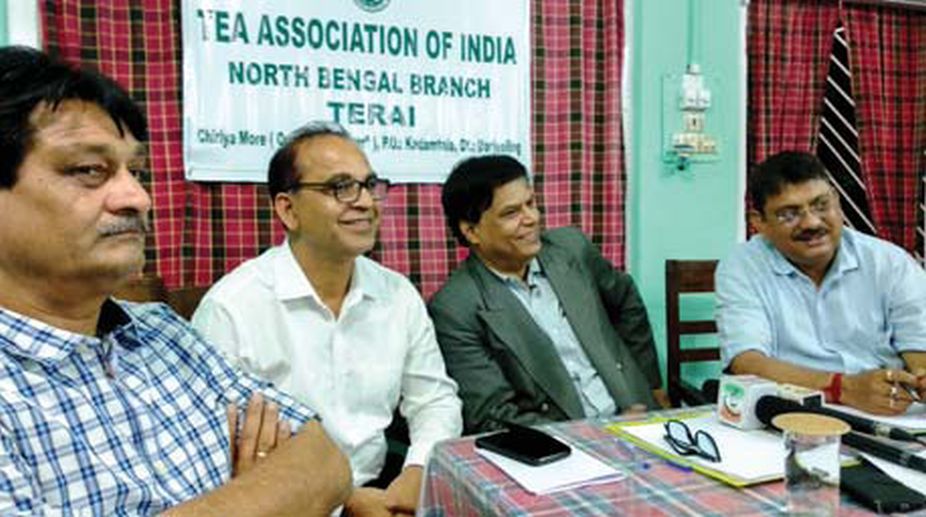Pakistan imports a huge amount of tea from Kenya, India’s main rival in the international tea market, mainly due to political reasons and affordable prices, even as planters in Bengal are facing acute problems of cost realization, manpower absenteeism and inability to introduce mechanization to maintain quality of produce.
Interacting with a group of reporters, the secretary general of the Tea Association of India (TAI), PK Bhattacharjee, said their main rival is Kenya in the international tea buyers’ market.
Advertisement
“Significantly, Pakistan procures huge amount of tea from Kenya, firstly due to political reasons and secondly favourable prices there,” he said.
“Our cost of production is very high as compared to other counties like Sri Lanka, Vietnam, Australia and Kenya.
The Pakistani market requires 150 to 160 million kg of tea. Pakistan can easily buy the same quality tea from India, but it will buy from Kenya at favourable prices.
Obviously, the rate at which I sell tea will not be the same at the rate Kenya can afford to sell,” Mr Bhattacharya said, adding, “The yield and fertility rate is high in Kenya. When the yield is 5,000 kg per hectare in Kenya, ours is 2,000.”
“Tea bushes are also young in Kenya, which virtually produces CTC tea, and they can go with mechanization.
But we are in no position to introduce mechanization and ignore production of quality tea. A reputed garden would not be able to introduce mechanization by damaging its goodwill,” he said.
Mr Bhattacharjee was accompanied by the chairman of the TAI, north Bengal branch, Prakash Mudgal, senior executive member of the TAI, PK Sharma, and secretary of the TAI, Terai Branch, Sumit Ghosh.
Sources said that tea exported through both Siliguri and Kolkata E-auction centres was not even 2.5 million kg in the last three years. Planters recently tabled the data to the recently-constituted Group of Ministers in West Bengal.
Mr Bhattacharjee claimed that besides countries in the Commonwealth of Independent States (CIS), tea export has increased in the USA, compared to previous records and other counties like Egypt and an effort has been taken to increase export in Iran.
Describing absenteeism problems, Mr Bhattacharjee said: “We have noticed absenteeism problems in the last 10 to 15 years. Workers running away is also responsible for the deterioration of the quality of tea.
I will be happy if I can engage contractual workers to increase manpower during peak hours. But I can’t do that violating the present Act for tea plantation.”
Mr Bhattacharjee also expressed concern over the present trend of permanent workers and said: “Permanent workers prefer to do 100- day job to earn extra, following a wage pattern of Rs 170 for National Rural Employment Guarantee Scheme.
There are several national programmes that are being implemented in the tea belt and planters face a shortage of manpower during its implementation.
To check absenteeism, we requested the government to implement those schemes during the winter, but it was not possible because the government implements such national schemes in July, keeping in mind the flood season, which is also a season for tea production.”











